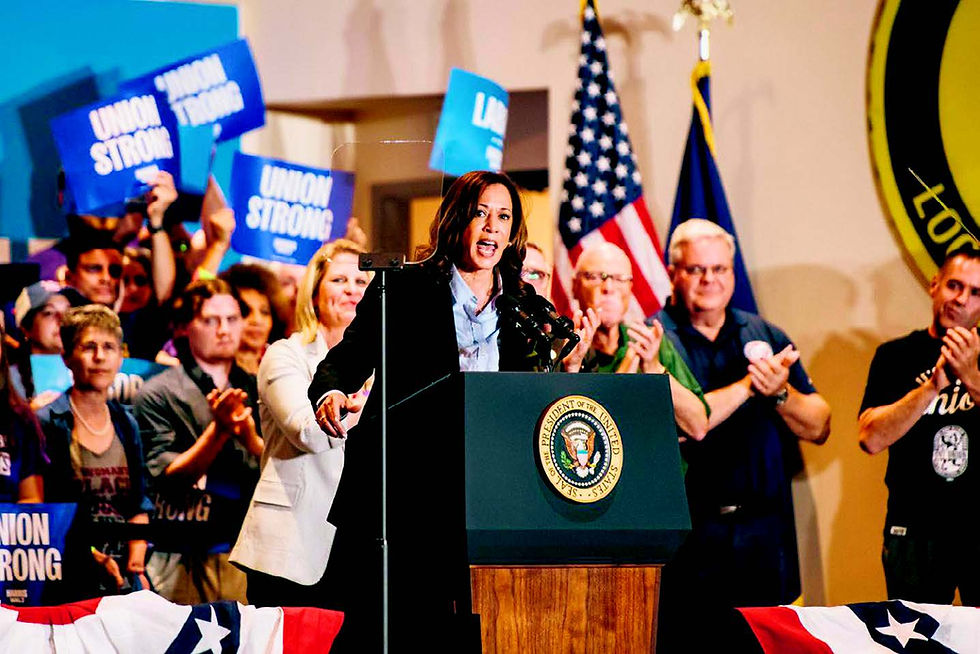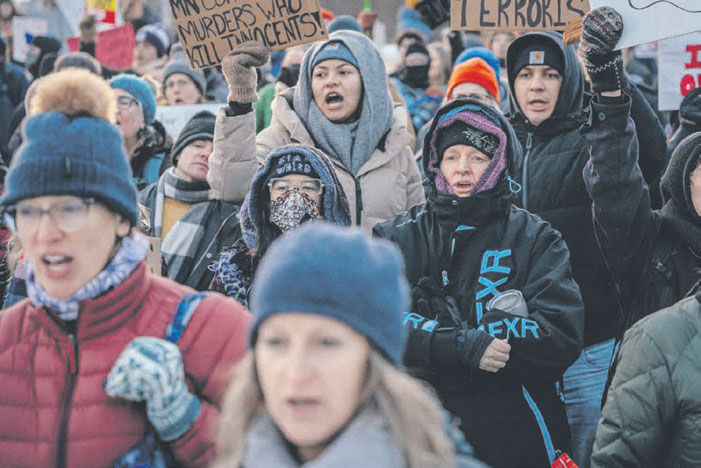Biden plays second fiddle to Harris as they rally for union support
- The San Juan Daily Star

- Sep 4, 2024
- 4 min read

By Jonathan Weisman and Nicholas Nehamas
President Joe Biden gave a demonstration earlier this week that the Democratic Party now belongs to Vice President Kamala Harris, stepping to the microphone at a campaign event in Pittsburgh to introduce his No. 2 rather than taking the speaking slot of honor for himself.
“Folks, we’ve made a lot of progress, and Kamala and I are going to build on that progress, and she’s going to build on it,” Biden said at a local union hall as he rallied the labor movement in support of Harris, who stood behind him leading the crowd in applause. “I’ll be on the sidelines, but I’ll do everything I can to help.”
But although the atmosphere between Harris and Biden was warm at their first joint campaign appearance, the president hardly seemed eager to take the supporting role. He spoke for more than 24 minutes, roughly eight minutes longer than the vice president’s remarks. And he talked far more about the accomplishments of his administration than Harris’s role in them or an upcoming election against former President Donald Trump that is expected to be razor thin.
When Biden finally invited the Democratic nominee up to speak, the crowd chanted “Kamala” as they clasped hands before he planted a kiss on her forehead.
“Can we please give it up again for our president, Joe Biden,” Harris said before delivering a speech that served as a paean both to organized labor and to the Biden administration’s support of unions.
“We are so proud to be the most pro-union administration in America’s history,” she said.
Harris’ stop in Pittsburgh capped a Labor Day spent seeking to press her advantage with union voters. Earlier in the day, she held an event in Detroit while her running mate, Minnesota Gov. Tim Walz, appeared in Milwaukee.
All told, Harris and Walz managed to visit each of the so-called blue wall states of Michigan, Pennsylvania and Wisconsin, appealing to union voters as the ground troops of a campaign that has barely two months left. Still, the events were far smaller than the rallies Harris has held in recent weeks that have filled up basketball arenas with thousands of supporters.
At Northwestern High School in Detroit, Harris was greeted onstage by the presidents of unions representing autoworkers, laborers, utility workers and teachers.
“I tell people: ‘You may not be a union member, but you better thank a union member,’” Harris told a crowd of nearly 450 people, attributing union action for paid leave, vacation time, higher wages and safer work conditions.
The question hanging over the flurry of campaign events, however, was just how important unions remain in an American labor force where they represent 1 in 10 workers, half the percentage they once represented in the 1980s. It is also not clear whether union members, especially in the old-line industrial and laborer unions, will side with the Democratic ticket as overwhelmingly as they once did, as Trump continues his courtship of the working class.`
In Detroit, Michigan’s Democratic luminaries — Gov. Gretchen Whitmer and Sen. Debbie Stabenow, and hopefuls such as Rep. Elissa Slotkin, who is running for Stabenow’s Senate seat — shared the stage with Shawn Fain, president of the United Auto Workers; Brent Booker, general president of the Laborers’ International Union of North America; and Randi Weingarten, president of the American Federation of Teachers; and others.
In Pittsburgh, Harris was joined by Pennsylvania Gov. Josh Shapiro, a Democrat, and Sen. Bob Casey, D-Pa., as well as Liz Shuler of the AFL-CIO and Kenny Cooper of the International Brotherhood of Electrical Workers. In Milwaukee, Walz appeared alongside Wisconsin Gov. Tony Evers and Sen. Tammy Baldwin, D-Wis.
All three governors of the blue wall states are popular with voters and are expected to play key roles in whipping up enthusiasm for Harris. Casey and Baldwin are seeking reelection.
“This is when you labor leaders, y’all got to go knock on your colleagues’ doors,” Shapiro said in Pittsburgh. “You got to text them. You got to call them.”
In contrast to the busy day for Democrats, Trump appeared at least publicly to take the day off. He released a statement praising American workers without mentioning unions.
“We were an Economic Powerhouse, all because of the American Worker!” Trump wrote. “But Kamala and Biden have undone all of that.”
Even as she moves out of Biden’s shadow, Harris is still following him carefully on policy.
During her remarks in Pittsburgh, Harris announced that she would oppose the takeover of U.S. Steel by a Japanese company, prompting cheers from a crowd of roughly 600 people. Biden had taken the same position in March, shortly before he was endorsed by the United Steelworkers, an influential union based in Pittsburgh. (Trump has also said he opposes the deal.)
“I couldn’t agree more with President Biden: U.S. Steel should remain American-owned and American-operated,” Harris said.
And their first joint campaign appearance seemed to reinforce why Harris is now leading the Democratic ticket. It was hard not to notice the difference between their clarity as orators. Biden told war stories of political campaigns and union leaders from decades ago, his voice fluctuating from a nearly inaudible whisper to a shout as he emphasized his points. Harris stuck to a cleaner and more streamlined message, arguing that she would fight for workers while Trump offered a return to a past of union-busting.
Biden had suggested that he speak first, volunteering himself for an auxiliary performance, according to three people briefed on the event.
Harris’ day of travel also underscored a major division still fracturing the Democratic coalition: the Israel-Hamas war in the Gaza Strip. Unions have been some of the loudest voices calling for an immediate cease-fire and the halting of military aid to Israel.






Comments